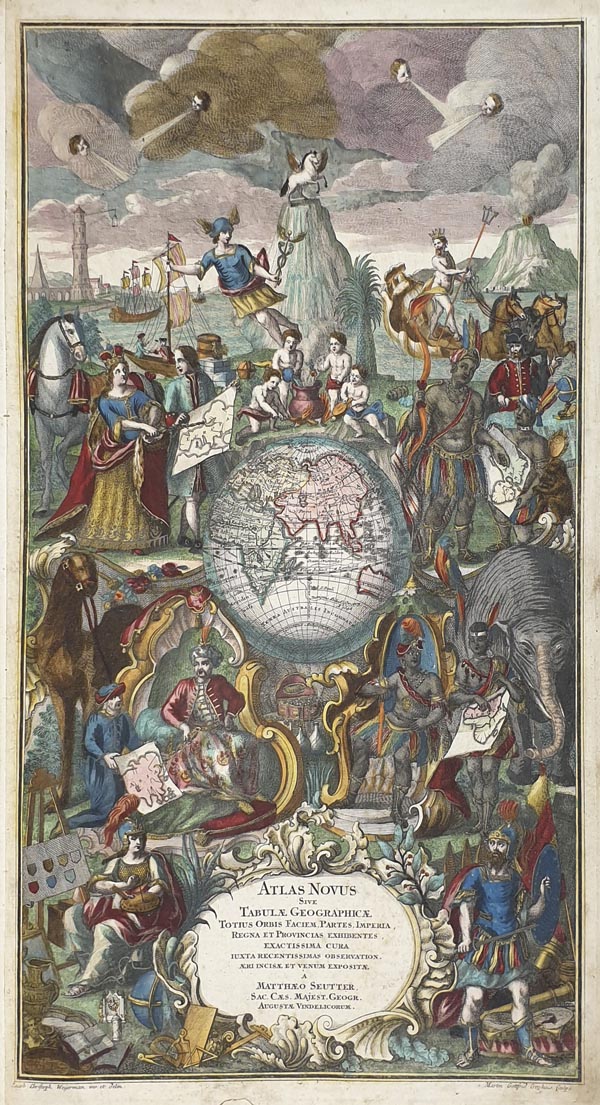Atlas Novus Sive Tabulae Geographicae...
Augusta Vindelicorum Matthaeus Seutter150. árverés / 139.
Kikiáltási ár: 5 000 000 Ft Leütési ár: 5 000 000 FtGeorg Matthaeus Seutter által kiadott világatlasz, amely 92 kézzel számozott térképet és egy távolságkereső táblázatot tartalmaz. Seutter Nürnbergben töltött tanulóévei alatt Johann Baptist Homann-nál ismerte meg a térképkészítés műhelytitkait, majd visszaköltözött szülővárosába, Augsburgba, és Jeremias Wolff metszője lett. 1707-ben alapított saját nyomdát és korának egyik legjelentősebb kiadójává vált. Az atlasz első -- 16 lapos -- kiadása 1720-ban jelent meg. Az ezt követően közreadott példányokat a kiadó a vásárló igényei szerint állította össze. Tételünk a kézzel írt tartalomjegyzék alapján teljes, annál eggyel több táblát tartalmaz, amelyen európai városok közötti távolságokat tartalmaz táblázatos formában (Curioser Städt-Zeiger). A térképek -- amelyek főként Homann, Guillaume Delisle és Nicolas de Fer korábbi munkái alapján készültek -- megjelenítik a csillagos eget, a Földet, a földrészeket, az európai országokat, hercegségeket és püspökségeket, néhány amerikai területet (New York -- New Jersey -- Pennsylvania, Kanada), Törökországot, a Szentföldet, valamint Jeruzsálem és Freiburg városát. Három további lap hadászati ábrákat mutat be. A gyönyörűen kidolgozott címlapot -- amelyet (a kartus módosítását követően) Seutter halála után veje, Tobias Conrad Lotter is felhasznált -- Jacob Christoph Weyerman tervezte és Martin Gottfried Grophius metszette. A középpontjában a földgömb keleti féltekéje látható, körülötte a négy földrész képviselőjével és vázlatos térképével. A korabeli színezésű térképlapok gazdagon illusztráltak, allegorikus jelenetekkel és látványos barokk kartusokkal díszítettek.
Restored, contemporary leather. With a larger brownish discolouration on one sheet (Silesiae Ducatus), otherwise clear maps.



